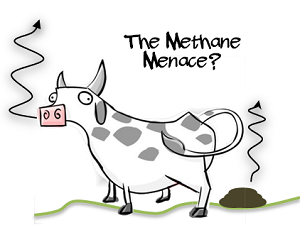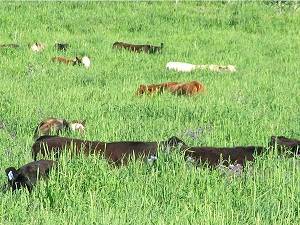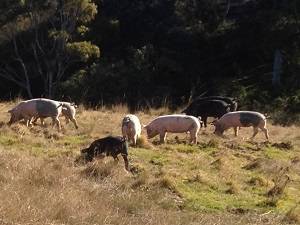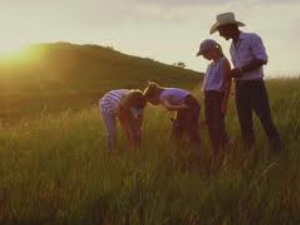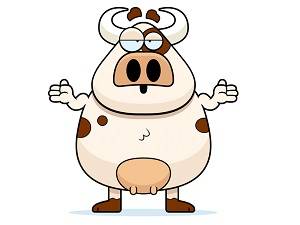
Meats are a very important source of good nutrients for humans. Just like humans, animals only have a limited capability to convert poor food into healthy nutrients. So they also need to eat foods that have the appropriate balance of these nutrients. This means that the types, quantities and ratios of nutrients such as Omega 3 and Omega 6 fatty acids in the meat is dependent on the quality of the diet and lifestyle of the animal. Meats only have healthy characteristics if the diets (and lifestyles) of the animals also have these healthy nutrients and ratios.
Pigs and chickens evolved eating a wide variety of foods including grass, grubs, fungi, insects and grains. We now know that they don’t do this just for fun and frolics. Grass, grubs, fungi and insects contain nutrients and nutrient ratios that are important for the health of the pigs and chickens. Interestingly, it turns out that nutrients in these foods match the nutrients and ratios important to human health as well (this is probably not a coincidence!).
For example, grass is generally high in nutrients like Vitamin E, important minerals and Alpha-Linoleic acid (ALA) which is converted by the animal to long chain Omega 3 fatty acids. Insects are chock full of vitamins, minerals, trace elements, beneficial fatty acids, lysine and natural Methionine. But natural systems are highly variable and dynamic and so different grasses and insects will have individual nutritional characteristics which will change day by day. Animals are also highly individual and variable and their nutritional needs change constantly with their health, their age and reproductive status. This variation is completely natural and itself healthy.
All these natural elements - plants, insects and animals - have evolved with this variation. They have evolved the senses, microbial partnerships and feedback mechanisms that help them to choose the order and combination of the foods they eat so they can satisfy their nutritional needs. In addition, the behaviours of the animals and the functions of grass, grubs, fungi and insects also serve to replenish soil fertility and soil-water reserves, making the landscapes naturally healthy.
Intensification of production of chickens and pigs has changed their diets and lifestyles and the landscapes they live in significantly. Eliminating the grass, grubs, insects and fungi has reduced the sources of Omega 3 (and other important) nutrients and feeding an average ration to all the animals has eliminated their ability to meet their individual and changing requirements from their diets. Changing the nutritional sources from self-organising, wooded landscapes with grass, grubs, insects and fungi to grains produced from continuously cropped landscapes that are dependent on fertilisers and imported nutrients means that the soils that are producing these foods are not being fully replenished and are dependent on inputs from finite reserves.
Meat from chickens and pigs raised in intensive production has generally much higher Omega 6 levels in their meat making it a less healthy meat for humans to eat. With the rising emphasis on the importance of Omega 3 fatty acids in human health, the intensive production systems are developing ways of artificially supplementing these animals with fish oil and using genetic modification of them to increase these nutrients in the flesh of the animals. Artificial sources of Omega 3 and other nutrients are likely to be energy-intensive to produce and also require energy to dispose of associated wastes.



